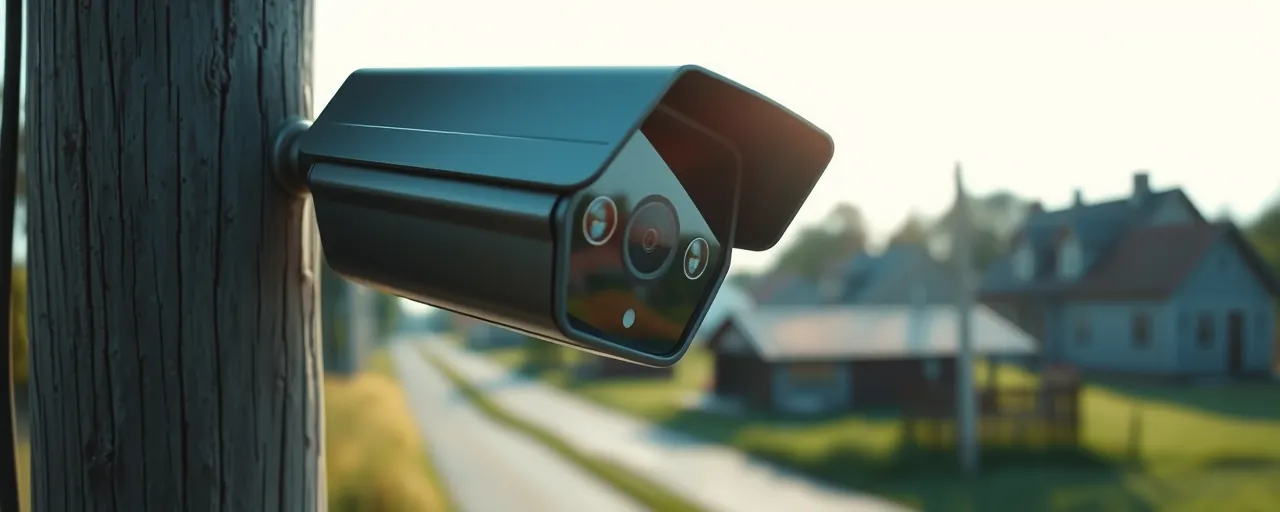A Small Town’s Big Dilemma
Houlton, Maine, wants safer streets. In 2024, the town installed fifty advanced cameras to deter crime, backed by federal funds. The plan promised security for its 6,000 residents, but privacy concerns quickly derailed it. By February 2025, the system was paused amid legal and ethical questions. Now, with a new $3,300-a-year licensing deal and a revised policy, Houlton is restarting the program. But one question lingers: can safety coexist with our fundamental freedoms?
These cameras, equipped with facial recognition, watch every public move. For a tight-knit community, that level of scrutiny feels personal. Residents worry their daily routines could be recorded, stored, or misused. The issue isn’t rejecting safety; it’s about ensuring surveillance doesn’t erode the liberties we value. Houlton’s struggle reflects a broader national tension over how far technology can go before it crosses a line.
Across America, cities are racing to adopt surveillance tools—AI analytics, license-plate readers, and more. The allure of crime prevention is strong, but without clear rules, these systems risk targeting vulnerable groups and stifling free expression. Houlton’s experience serves as a cautionary tale. Good intentions alone won’t protect our rights.
The Hidden Costs of Surveillance
Cameras can reduce crime, and the data backs it up. Studies show reductions of 51% in parking lots and 23% in transit systems. Baltimore reported thirty fewer monthly incidents after camera installations, and Chicago saved $4.30 per dollar spent. Yet, in city centers, the impact is often modest, and passive recording without active monitoring yields weaker results. Houlton’s fifty cameras, once costing $7,000 annually, might deter some crimes, but the price of unchecked surveillance is far steeper.
Advocates like the ACLU warn of serious risks. Facial recognition, as used in Houlton’s Verkada cameras, often misidentifies people, particularly from marginalized communities. Without strict limits, data can be shared without warrants, violating Fourth Amendment protections. Maine’s 2021 biometric privacy law restricts facial recognition, but Houlton’s initial rollout ignored these rules, fueling distrust. Why should residents trust a system that began with such disregard?
Some town officials argue cameras are essential for safety, claiming public spaces offer no privacy and visible cameras deter crime. This perspective overlooks the threat of expanding surveillance uses, like monitoring protests or tracking innocent behavior. Without robust oversight, these tools risk enabling government overreach rather than fostering community security.
Building a Balanced Approach
Houlton can prioritize both safety and privacy. Other cities provide models for success. Participatory governance in some U.S. and European smart cities invites residents to shape surveillance policies, ensuring accountability. Technologies like data anonymization and automatic overwrite systems, used in ShotSpotter setups, minimize personal data collection. Houlton could adopt these practices to rebuild trust.
Recent laws point the way forward. The EU’s AI Act and new U.S. state privacy laws emphasize transparency and data rights. The Fourth Amendment Is Not for Sale Act, reintroduced in 2024, seeks to curb warrantless data access. Houlton’s updated camera policy is a step, but it needs stronger measures—independent audits, public reporting, and clear data limits. Anything less invites repeating past errors.
This debate reveals a core truth: surveillance tools are only as trustworthy as their governance. Residents deserve a voice in how their lives are monitored. Dismissing their concerns, as some camera supporters do, ignores the chilling impact on free speech and assembly. Safety is vital, but so is the right to live free from constant government scrutiny.
Defending Our Freedoms
Houlton’s camera controversy echoes a long-standing fight. Since the 1960s, civil rights advocates have battled intrusive surveillance, from COINTELPRO to post-9/11 data collection. Today, with AI and cloud-based systems, the stakes are even higher. The global surveillance market, now at $43.6 billion in 2025, is projected to reach $62.6 billion by 2029. Without strong protections, technology will outstrip our rights.
We must act to prevent that. Houlton’s residents, like all Americans, deserve policies that safeguard their freedoms. The town’s new licensing deal may seem cost-effective, but the true cost lies in eroded trust. Transparent oversight, precise usage rules, and community engagement can restore confidence. Anything less undermines the principles we hold dear.
Houlton has a chance to set a standard for small towns, proving technology can serve people without compromising liberty. This fight extends beyond cameras—it’s about who shapes our future. Let’s demand a system that respects our rights and puts community trust first.
